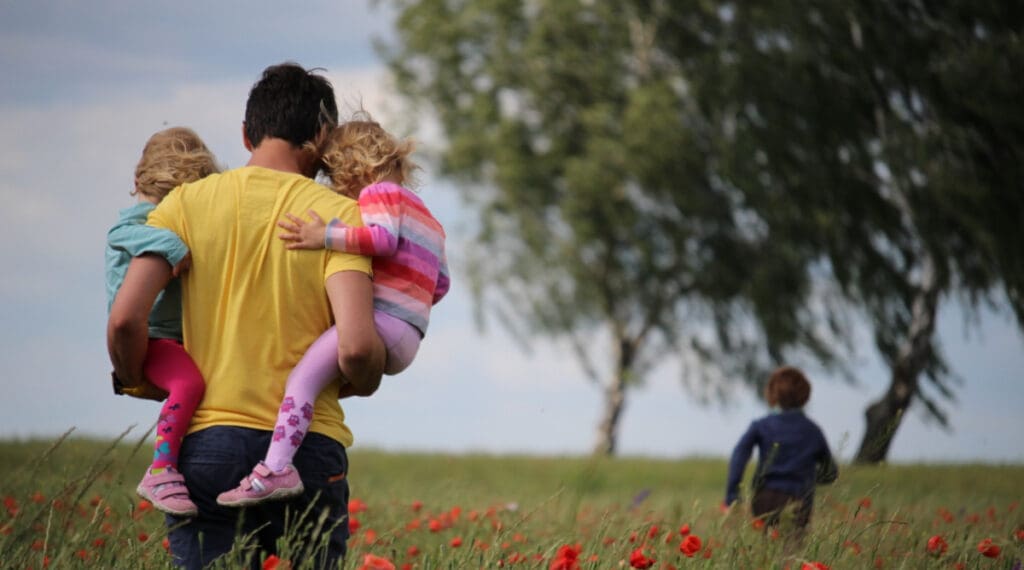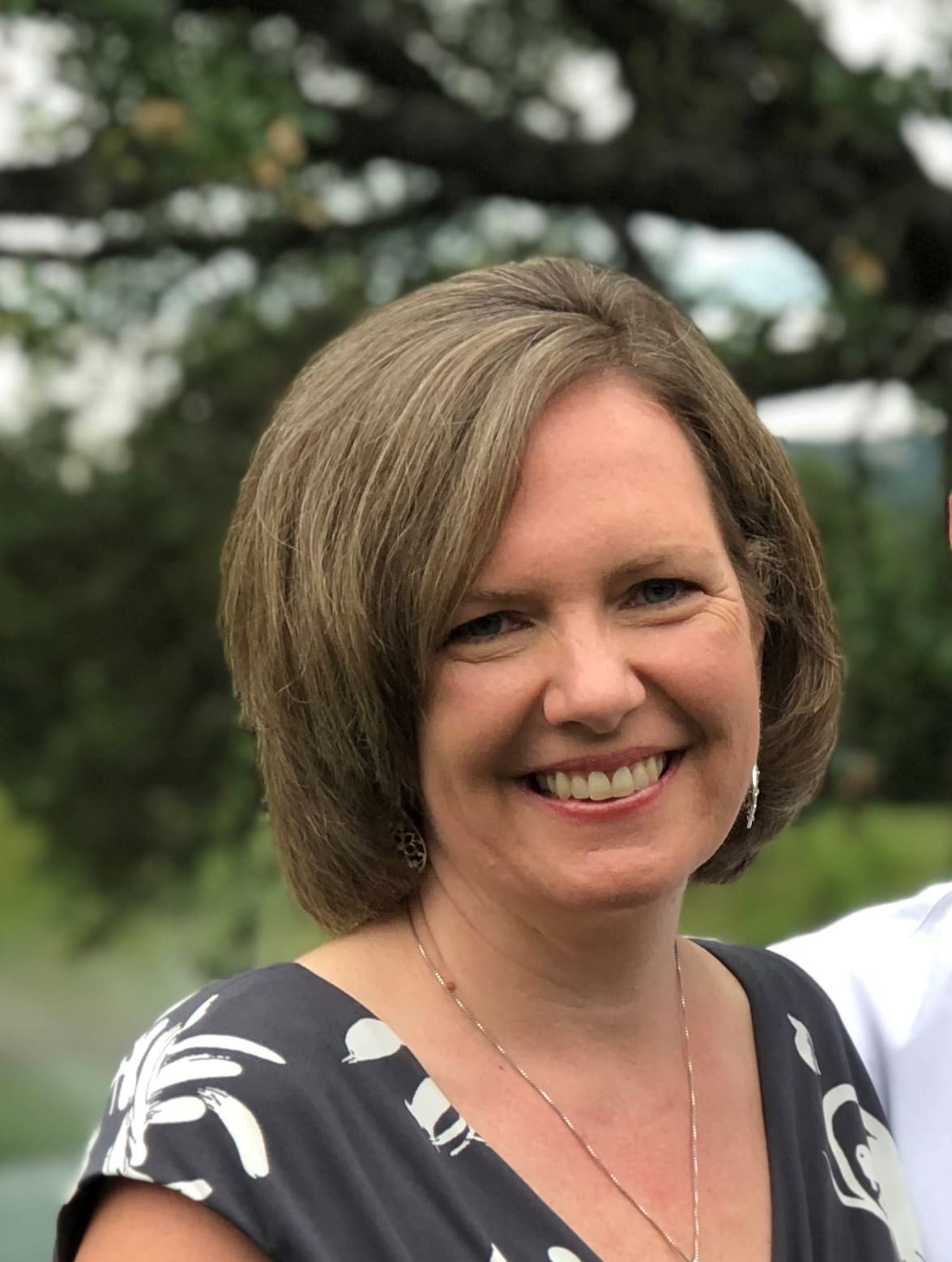Over the years, I cannot count the number of times that I heard words like, “Your father is the best!” or “I love your Dad!”
My dad was the kind of father that most of my friends wished they’d had. In my eyes, he was John Wayne, Charles Ingalls, and Moses rolled into one. As my siblings and I moved into adulthood, we eventually realized that Dad was a mere human being, but this made our relationship with him all the more real and enduring.
My father was a wise, talented, and loving man, but best of all, he lived out his vocation faithfully, providing a safe harbor for his wife and children in an uncertain world. His life, his illness, and his death taught me precious truths which have enriched my life and helped make me a better person and a more faithful disciple of Christ. I was grateful to receive this priceless inheritance from his hands.
It was late May 2007. The nighttime had tormented my terminally ill father for months. Sleepless and agitated, he would slowly shuffle around the house. On this particular night it became clear that we couldn’t care for him on our own anymore. My brother and my husband, physically and emotionally exhausted themselves, grappled with Dad, who was often upset and delusional.
By then it had been nine agonizing months since the pancreatic cancer had returned. In the midst of all of the trials which followed so closely one upon the other, the mental and physical changes we perceived in my father affected us the most. We watched him transform from a handsome sixty-two-year-old to a bent over, emaciated old man, barely able to communicate. His once expansive life now a pinpoint of existence. The anguish of losing him in his role as husband and father was unspeakable. Slowly, partly due to improper medication, he had become depressed and edgy, then paranoid and almost impossible to manage.
Through it all, when I was beginning to feel that my amazing, faith-filled dad was gone, he reminded us yet again that he was still there, depending on us, and desperate to continue to love and be loved. This manifested itself clearly to me one day as I tended to his needs during a hospital stay. I felt sick with the tension of wondering what he was going to do or say next. Propped up in the bed, he gazed at me as I lingered near him and said with wonder, “You’re so beautiful.” Then he slowly took my hand and kissed it.
But caring for Dad at home was becoming complicated and after that troubling night in May, we brought him back to the hospital. Dad, who had resisted this cancer and the idea of dying with every ounce of his mental and spiritual strength, was plainly near the end of his life. We did our best, with guidance from the teachings of the Catholic Church, to navigate the end-of-life issues.
Dad lived five more days, mostly in a morphine-induced state of unconsciousness. During this time, one or more family members stayed with him constantly, and we brought his grandchildren into his hospital room to pray and sing and say goodbye. The children had helped support Grandpa throughout this journey. They approached his death with compassion and the hope of heaven, though my eleven-year-old son, tears streaming down his face, had to be taken out of the room at one point. He told me he was sad because his baby cousins would never know this remarkable man. My youngest sister would give birth to twin boys just days after his passing.
As my family and I journeyed down this gauntlet of anguish, it deeply distressed me that the end of my father’s life was so “messy.” In thinking about either one of my parents dying, I imagined that we would gather around the bed of our loved one, saddened, but peaceful, saying our last good-byes and receiving a last look or word. It didn’t happen that way, and we felt the shock of it profoundly.
Sometimes we wished that Dad would not be so stubborn and that he would be more peaceful as he faced his own mortality, primarily because it would have made us feel better. Isn’t it ironic how we wanted him to play the hero while we shunned the measure of suffering appropriated to us? In early June with Father’s Day just around the corner, my dad died in his hospital bed. Over the course of his illness, he had received the anointing of the sick from our parish priest several times, but a fortunate miscommunication caused another priest to come into his hospital room early that morning. My husband watched as the priest gave Dad the anointing again, along with the special gift of an Apostolic Blessing.
Sometime within the next hour, my father’s soul left his body. After a lifetime of persevering in his faith, it didn’t matter that my mother, who had rarely left his side, was not present, or that my husband had fallen asleep. Dad didn’t need us anymore. He needed to be in the state of grace, and he needed his Blessed Mother to pray for him “at the hour of death,” and he needed the angels to guide him to his eternal home. There Jesus would say with compassion, “I know—the last part was the hardest of all,” and our Heavenly Father would say, “Well done, my good and faithful servant.” (Matt 25:23)
At home, I received the phone call I had dreaded for so long, and although I was devastated, I found myself pathetically grateful that it was over. My whole family felt battered and exhausted, but confident that we had done our best to accompany Dad, communicating to him that he was loved and honored even when he became sick and difficult to care for. It was not easy, but someday God will reveal how our suffering was made fruitful, and we will shout with praise and cry with gratitude.
Unlike our Heavenly Father, my dad was not perfect. But he was faithful to his vocation as husband and father. He spent his life trying to be the man that Ephesians 5 calls him to be. By imitating Christ and daily laying down his life for his wife and his children. Living out his vocation this way, he strengthened and trained himself to face his final challenge.
And he modeled perseverance. When the going gets tough, the weak turn to Jesus. My dad did that every day until the end.
In addition, my father demonstrated his belief in redemptive suffering and his devotion to Jesus who instructs all of us to take up our cross and follow Him. My dad proved that he was a true Christian as he took up his cross and followed in the steps of Jesus. Did he do it flawlessly? No. But he struggled to continue to give praise and thanks to God. To accept His will. Dad tried to unite his sufferings to those of Christ “for the sake of His body, the church.” (Col 1:24) St. Therese of Lisieux said if we pick up a pin for the love of God, we can save a soul. My father’s prayers and sacrifices made our family beneficiaries of countless blessings.
My family and I thank God for giving us a father who modeled our Heavenly Father’s care for us and who taught us about what it means to be a disciple of Christ. Our father left us the kind of inheritance referenced in Mathew 6:19—a lasting treasure that moth and rust cannot destroy and thieves cannot steal. We look forward with joy to being together again with him in the Kingdom of Heaven…our final and lasting inheritance!
***********
Thinking about my father’s life as we approach Father’s Day, I am struck again by the significance of fatherhood. Good fathers reveal to us the love of our Heavenly Father, who “takes care of our needs” and who adopts us as His own sons and daughters. (CCC 270)
Is it any wonder then that Satan has waged war on fatherhood? The enemy is trying to destroy true fatherhood so that we will become confused about the fatherhood of God and fear a relationship with Him.
The more we suffer from a lack of good fathers in our present age, the more we want to pretend that fatherhood is not important. But what we need is healing from father wounds, not denial. God wants to give us that healing!
We must lift up fatherhood so that it becomes what God has designed it to be. We can start by thanking God for fathers and for all men who model the love of our Heavenly Father. And we must not neglect to tell our dads, our parish priests, and other men in our lives how much their fatherly care means to us! Good fathers know all too well how many times they fail their children, and they crave our unfailing support and encouragement.
God bless all men who strive to fulfill in myriad ways the vocation God has given them to be “father.” We need you and we love you!
Image courtesy of Unsplash.




